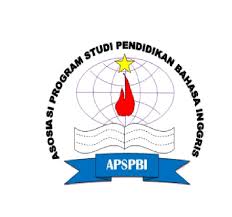Unlocking the Secrets of Effective Teaching: An Exploration of Positive Emotions During Telecollaboration
DOI:
https://doi.org/10.22515/elereviews.v4i2.8786Keywords:
pre-service English teacher, positive emotion, telecollaboration, well-beingAbstract
In recent years, the recognition of teachers’ well-being has gained worldwide attention. Language teacher well-being has a significant contribution to classroom activity. This study explores a pre-service English teacher’s positive emotions of well-being based on PERMA and its impact on future careers. Positive emotions are the presence of positive emotions, lack of negative emotions, and life satisfaction. Telecollaboration provides a beneficial space to get the chance to expand content knowledge, increase techno-pedagogical abilities, improve the methodology of teaching, and achieve a sense of well-being. This study used autobiographical narratives to capture the researcher’s positive well-being experiences. Data were gathered through diaries and artifacts in the form of photos and screenshots during telecollaboration. The researcher used a thematic analysis technique to analyze the data. The findings underscore the presence of positive emotions that influence the outcomes of pre-service teachers, while negative emotions shift into positive feelings, thus contributing to personal development. These experiences lead the pre-service English teacher into an effective prospective educator for the future.
Downloads
References
Ahmed, A. T., & Shogbesan, Y. O. (2023). Exploring pedagogical content knowledge of teachers: A paradigm for measuring teacher’s effectiveness. Pedagogi: Jurnal Ilmu Pendidikan, 23(1), 64-73. https://doi.org/10.24036/pedagogi.v23i1.1540
Alluru, N. H., & Suneela, M. E. (2023). Nurturing future educators: The crucial role of well-being in pre-service teachers. International Journal for Multidisciplinary Research, 5(6). https://doi.org/10.36948/ijfmr.2023.v05i06.9975
Barkhuizen, G. (2014). Narrative research in language teaching and learning. Language Teaching, 47(4), 450-466. https://doi.org/10.1017/s0261444814000172
Belz, J. A. (2003). Linguistic perspectives on the development of intercultural competence in telecollaboration. Language Learning and Technology, 7(2), 68-99. http://llt.msu.edu/vol7num2/belz/default.html
Briner, R., & Dewberry, C. (2007). Staff wellbeing is key to school success: A research study into the links between staff wellbeing and school performance. Worklife Support Ltd. http://www.teachertoolkit.co.uk/wp-content/uploads/2014/07/5902birkbeckwbperfsummaryfinal.pdf
Burić, I., & Frenzel, A. C. (2023). Teacher emotions are linked with teaching quality: Cross-sectional and longitudinal evidence from two field studies. Learning and Instruction, 88, 101822. https://doi.org/10.1016/j.learninstruc.2023.101822
Capone, V., & Petrillo, G. (2020). Mental health in teachers: Relationships with job satisfaction, efficacy beliefs, burnout and depression. Current Psychology: A Journal for Diverse Perspectives on Diverse Psychological Issues, 39(5), 1757-1766. https://psycnet.apa.org/doi/10.1007/s12144-018-9878-7
Caprara, G. V., Barbaranelli, C., Steca, P., & Malone, P. S. (2006). Teachers’ self-efficacy beliefs as determinants of job satisfaction and students’ academic achievement: A study at the school level. Journal of School Psychology, 44(6), 473-490. https://psycnet.apa.org/doi/10.1016/j.jsp.2006.09.001
Corcoran, R. P., & O’Flaherty, J. (2022). Social and emotional learning in teacher preparation: Pre-service teacher well-being. Teaching and Teacher Education, 110, 103563. https://doi.org/10.1016/j.tate.2021.103563
Diener, E., Emmons, R. A., Larsen, R. J., & Griffin, S. (1985). The satisfaction with life scale. Journal of Personality Assessment, 49(1), 71-75. https://doi.org/10.1207/s15327752jpa4901_13
Diener, E., Oishi, S., & Lucas, R. E. (2003). Personality, culture, and subjective well-being: Emotional and cognitive evaluations of life. Annual Review of Psychology, 54(1), 403-425. https://doi.org/10.1146/annurev.psych.54.101601.145056
Diener, E., Suh, E. M., Lucas, R. E., & Smith, H. L. (1999). Subjective well-being: Three decades of progress. Psychological Bulletin, 125(2), 276-302. https://doi.org/10.1037/0033-2909.125.2.276
Dooly, M., & Vinagre, M. (2022). Research into practice: Virtual exchange in language teaching and learning. Language Teaching, 55(3), 392-406. https://doi.org/10.1017/S0261444821000069
Emir, G., & Yangın-Ekşi, G. (2024). The role of telecollaboration in English language teacher education: A systematic review. Smart Learning Environments, 11. https://doi.org/10.1186/s40561-024-00290-0
Eren, Ö. (2021). Raising critical cultural awareness through telecollaboration: Insights for pre-service teacher education. Computer Assisted Language Learning, 36(3), 288-311. https://doi.org/10.1080/09588221.2021.1916538
Fredrickson, B. L. (2001). The role of positive emotions in positive psychology: The broaden-and-build theory of positive emotions. American Psychologist, 56(3), 218-226. https://doi.org/10.1037/0003-066x.56.3.218
Fredrickson, B. L. (2004). Gratitude, like other positive emotions, broadens and builds. In Robert A. Emmons & Michael E. McCullough (Eds.), The Psychology of Gratitude (pp. 144-166). Oxford University Press. https://doi.org/10.1093/acprof:oso/9780195150100.003.0008
Fredrickson, B. L., & Kurtz, L. E. (2011). Cultivating positive emotions to enhance human flourishing. In S. I. Donaldson, M. Csikszentmihalyi & J. Nakamura (Eds.), Applied Positive Psychology: Improving Everyday Life, Health, Schools, Work, and Society (pp. 35-47). Routledge/Taylor & Francis Group.
Frenzel, A. C., Daniels, L., & Buri ́c, I. (2021). Teacher emotions in the classroom and their implications for students. Educational Psychologist, 56(4), 250-264. https://doi.org/10.1080/00461520.2021.1985501
Frenzel, A. C., Goetz, T., Stephens, E. J., & Jacob, B. (2009). Antecedents and effects of teachers’ emotional experiences: An integrated perspective and empirical test. In P. A. Schutz & M. Zembylas (Eds.), Advances in Teacher Emotion Research (pp. 129-151). Springer. https://doi.org/10.1007/978-1-4419-0564-2_7
Fuchs, C. (2019). Critical incidents and cultures‐of‐use in a Hong Kong‐Germany telecollaboration. Language Learning and Technology, 23(3), 74-97.
Guth, S., & Helm, F. (Eds.). (2010). Telecollaboration 2.0: Language, literacies, and intercultural learning in the 21st century (Vol. 1). Peter Lang. https://doi.org/10.3726/978-3-0351-0013-6
Hascher, T., & Waber, J. (2021). Teacher well-being: A systematic review of the research literature from the year 2000-2019. Educational Research Review, 34, 100411. https://doi.org/10.1016/j.edurev.2021.100411
Ji, Y., Oubibi, M., Chen, S., Yin, Y., & Zhou, Y. (2022). Pre-service teachers’ emotional experience: Characteristics, dynamics and sources amid the teaching practicum. Frontiers in Psychology, 13. https://doi.org/10.3389/fpsyg.2022.968513
Kun, Á., Balogh, P., & Krasz, K. G. (2016). Development of the work-related well-being questionnaire based on Seligman’s PERMA model. Periodica Polytechnica Social and Management Sciences, 25(1), 56-63. https://doi.org/10.3311/ppso.9326
Liu, H., & Ma, X. L. (2017). The relationship between physical exercise and mental health of Kazakh middle school students in Tacheng boarding. Chin. J. Sch. Health, 38, 932-934.
MacIntyre, P. D., & Gregersen, T. (2012). Affect: The role of language anxiety and other emotions in language learning. In S. Mercer, S. Ryan & M. Williams (Eds.), Psychology for Language Learning: Insights from Research, Theory and Practice (pp. 103-118). Palgrave Macmillan. https://doi.org/10.1057/9781137032829_8
Maguire, K. R. (2022). Pre-service teachers’ reflections on content knowledge through microteaching. Reflective Practice, 24(2), 153-167. https://doi.org/10.1080/14623943.2022.2146082
Mercer, S., & Gregersen, T. (2020). Teacher wellbeing. Oxford University Press.
Nalipay, M. J. N., King, R. B., Haw, J. Y., Mordeno, I. G., & Rosa, E. D. D. (2021). Teachers who believe that emotions are changeable are more positive and engaged: The role of emotion mindset among in- and preservice teachers. Learning and Individual Differences, 92, 102050. https://doi.org/10.1016/j.lindif.2021.102050
O’Dowd, R. (2015). The competences of the telecollaborative teacher. The Language Learning Journal, 43(2), 194-207. https://doi.org/10.1080/09571736.2013.853374
O’Dowd, R., & Dooly, M. (2021). Exploring teachers’ professional development through participation in virtual exchange. ReCALL, 34(1), 21-36. https://doi.org/10.1017/S0958344021000215
Roffey, S. (2012). Pupil wellbeing - teacher wellbeing: Two sides of the same coin? Educational and Child Psychology, 29(4), 8-17. https://doi.org/10.53841/bpsecp.2012.29.4.8
Ryan, R. M., & Deci, E. L. (2001). On happiness and human potentials: A review of research on hedonic and eudaimonic well-being. Annual Review of Psychology, 52, 141-166. https://psycnet.apa.org/doi/10.1146/annurev.psych.52.1.141
Seligman, M. E. P. (2011). Flourish: A visionary new understanding of happiness and well-being. Free Press
Shulman, L. S. (1986). Those who understand: Knowledge growth in teaching. Educational Researcher, 15(2), 4-14. https://doi.org/10.3102/0013189X015002004
Toscu, S., & Erten, İ. H. (2020). Developing intercultural communicative competence by the means of telecollaboration. Education and Information Technologies, 25(5), 4517-4534. https://doi.org/10.1007/s10639-020-10174-8
Üzüm, B., Akayoğlu, S., & Yazan, B. (2020). Using telecollaboration to promote intercultural competence in teacher training classrooms in Turkey and the USA. ReCALL, 32(2), 162-177. https://doi.org/10.1017/S0958344019000235
Vinagre, M. (2017). Developing teachers’ telecollaborative competences in online experiential learning. System, 64, 34-45. https://doi.org/10.1016/j.system.2016.12.002
Wach, A., Zhang, D., & Nichols-Besel, K. (2021). Grammar instruction through multinational telecollaboration for pre-service teachers. ReCALL, 34(1), 4-20. https://doi.org/10.1017/s0958344021000112
Wiersma, W. (1991). Research methods in education: An introduction. Allyn and Bacon.
Yang, S. J (2020). Affordances and challenges of telecollaboration for pre-service teachers. Language Learning & Technology, 24(3), 30-41. http://hdl.handle.net/10125/44733
Downloads
Published
How to Cite
Issue
Section
Citation Check
License
Copyright (c) 2024 Adlina Nur Azri, Nur Arifah Drajati

This work is licensed under a Creative Commons Attribution-NonCommercial 4.0 International License.
Authors retain copyright and grant the journal right of first publication with the work simultaneously licensed under a Creative Commons Attribution License that allows others to share the work with an acknowledgement of the work's authorship and initial publication in this journal.
This ejournal system and its contents are licensed under
a Creative Commons Attribution-NonCommercial 4.0 International License








